March 8, 2023 •
California Senate Bill 1439 Challenged in Court
A coalition of business groups have filed a lawsuit against the Fair Political Practices Commission, seeking to stop enforcement of new pay-to-play restrictions in Senate Bill 1439. The new law removed the exception for locally elected officials and extended the […]
A coalition of business groups have filed a lawsuit against the Fair Political Practices Commission, seeking to stop enforcement of new pay-to-play restrictions in Senate Bill 1439.
The new law removed the exception for locally elected officials and extended the restricted period from three to 12 months.
The lawsuit seeks to throw out the new law, claiming the bill is unconstitutional, both in the manner it altered the Political Reform Act and in practice.
Plaintiffs allege Senate Bill 1439 does not further the original purpose of the Political Reform Act, but directly conflicts with the original provisions regulating certain financial conflicts of interest of public officials.
Additionally, the plaintiffs claim the bill is unconstitutional on freedom of speech grounds, stating the bill significantly restricts the making and receiving of campaign contributions to local elected officials throughout the state.
No trial date has been set at this time.
November 21, 2022 •
California Gift Limits and Contribution Limits Raised
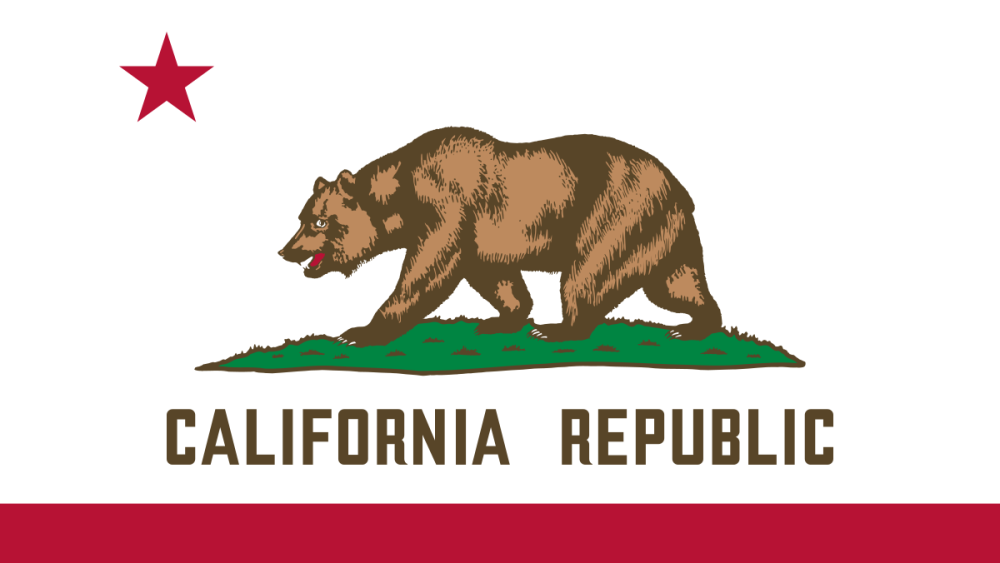
Flag of California
The California Fair Political Practices Commission (FPPC) held its November meeting, approving many changes for 2023. The FPPC raised the annual gift limit to $590 and clarified the phrase “arrange for the making of a gift.” The FPPC also expanded […]
The California Fair Political Practices Commission (FPPC) held its November meeting, approving many changes for 2023.
The FPPC raised the annual gift limit to $590 and clarified the phrase “arrange for the making of a gift.”
The FPPC also expanded and further explained how a lobbyist or lobbying firm “places an official under personal obligation.”
The contribution limits have been adjusted to match increases in the cost of living, raising the limit for Senate or Assembly to $10,900 and $36,400 for governor.
The new limits take effect January 1, 2023.
October 19, 2021 •
FPPC Proposes New Rule Changes

Sacramento, CA Skyline - Basil D Soufi
The Fair Political Practices Commission (FPPC) has announced that on November 18 the commission will consider proposed regulations concerning electronic signatures and lobbying record keeping. The FPPC seeks to clarify an “original” filing can be made with an electronic signature. […]
The Fair Political Practices Commission (FPPC) has announced that on November 18 the commission will consider proposed regulations concerning electronic signatures and lobbying record keeping.
The FPPC seeks to clarify an “original” filing can be made with an electronic signature.
Additionally, the FPPC wants to define the types of records lobbyists, lobbying firms, lobbyist employers, and persons spending $5,000 or more must maintain.
The FPPC will consider expanding the number of records that must be kept and the breadth of detail the records must contain.
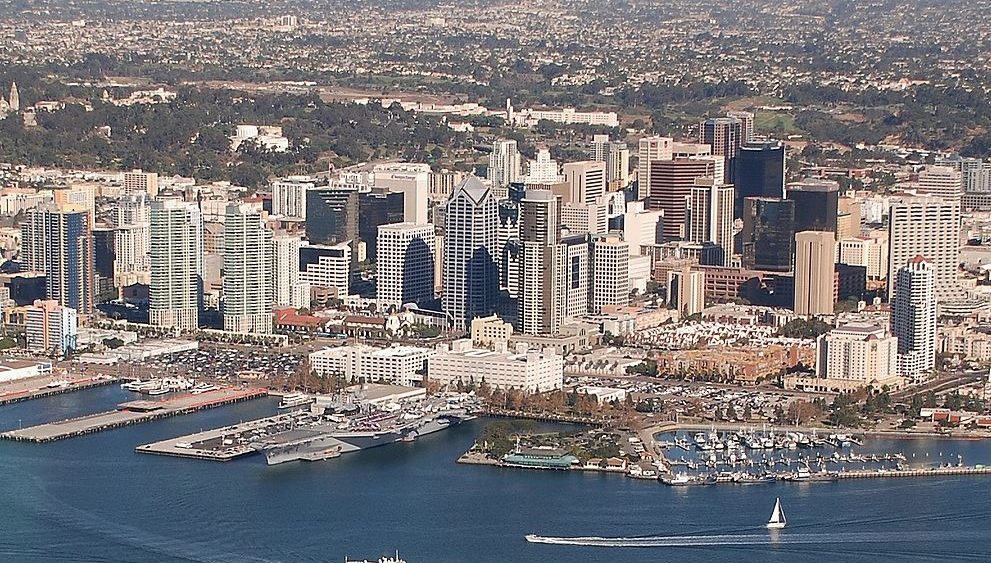
Downtown San Diego, California
The California Fair Political Practices Commission (FPPC) issued an opinion finding the state’s new limits on contributions to local candidates passed in Assembly Bill 571 for jurisdictions that otherwise do not have a limit are not aggregated with contributions made […]
The California Fair Political Practices Commission (FPPC) issued an opinion finding the state’s new limits on contributions to local candidates passed in Assembly Bill 571 for jurisdictions that otherwise do not have a limit are not aggregated with contributions made before the effective date of the bill.
FPPC Opinion No. O-21-001 reverses earlier informal advice from staff stating contributions received before the January 1 effective date were aggregated for purposes of the new default limit of $4,900 per election.
March 17, 2021 •
California Governor Newsom Expands Lobbying Ban
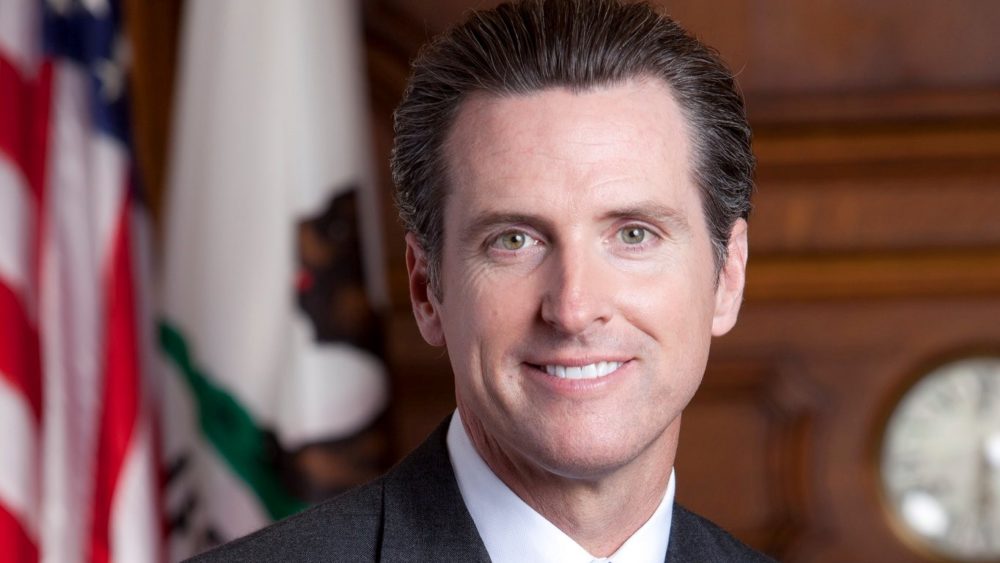
California Gov. Gavin Newsom
Gov. Gavin Newsom has expanded a ban on political consultants lobbying him and his administration to include unpaid advisers, based on recommendations from the Fair Political Practices Commission (FPPC). No consultant, whether paid or not, will be permitted to leverage […]
Gov. Gavin Newsom has expanded a ban on political consultants lobbying him and his administration to include unpaid advisers, based on recommendations from the Fair Political Practices Commission (FPPC).
No consultant, whether paid or not, will be permitted to leverage their relationship with the governor to unduly benefit a client in connection with legislative or administrative actions.
Under the new rules, appointees with a high level of influence over administration policy decisions are prohibited from accepting gifts from lobbyists.
The rule applies to the governor, his wife, senior officials, policy advisers, and any equivalent position.
The new rules also prohibit influential appointees from working on specific bills in their first two years if they worked on substantially similar bills in the two years prior to joining the Newsom administration.
It will apply to appointees who joined the administration after March 1, 2021.

Sacramento, CA Skyline - Basil D Soufi
The California Fair Political Practices Commission (FPPC) has issued an advisory encouraging people subject to lobbying registration and reporting requirements to continue to make the best efforts to timely file all legally required reports and statements. However, it may be […]
The California Fair Political Practices Commission (FPPC) has issued an advisory encouraging people subject to lobbying registration and reporting requirements to continue to make the best efforts to timely file all legally required reports and statements.
However, it may be difficult for some to file statements and reports given the shelter-in-place order and other issues caused by the pandemic.
If circumstances caused by COVID-19 inhibit the filing of a lobbying report or statement, the filer should communicate these issues to the Office of the Secretary of State and document all attempts to file and the issues faced.
While quarterly lobbying reports are filed electronically, the law requires certain other statements be filed on paper with an original signature.
Restrictions imposed to fight the spread of COVID-19 may make the logistics of filing documents on paper with original signatures difficult or even impossible.
To the extent this is the case, people required to file lobbying forms on paper with original signatures are encouraged to make use of digital and electronic options for filing reports to ensure timely filing.
Paper statements with original signatures will need to be filed when feasible.
If a person with lobbying filing requirements makes best efforts to comply with the Political Reform Act’s lobbying registration and reporting rules but is unable to do so due to the COVID-19 pandemic, the FPPC will consider this a strong mitigating factor in determining whether an enforcement action against the person is appropriate.
March 27, 2020 •
California FPPC Extending Form 700 Deadline

Sacramento, CA Skyline - Basil D Soufi
Due to the current COVID-19 pandemic, the Fair Political Practices Commission (FPPC) is allowing a 60-day extension for those required to file a 2019 annual Statement of Economic Interests (Form 700). This two-month extension means forms normally due on April […]
Due to the current COVID-19 pandemic, the Fair Political Practices Commission (FPPC) is allowing a 60-day extension for those required to file a 2019 annual Statement of Economic Interests (Form 700).
This two-month extension means forms normally due on April 1, 2020, will be accepted by the FPPC as timely until June 1.
The extension will apply to all officials required to file in April.
The FPPC intends to formally ratify this extension at its April 2 special meeting.
March 13, 2020 •
FPPC of California Creates Task Force
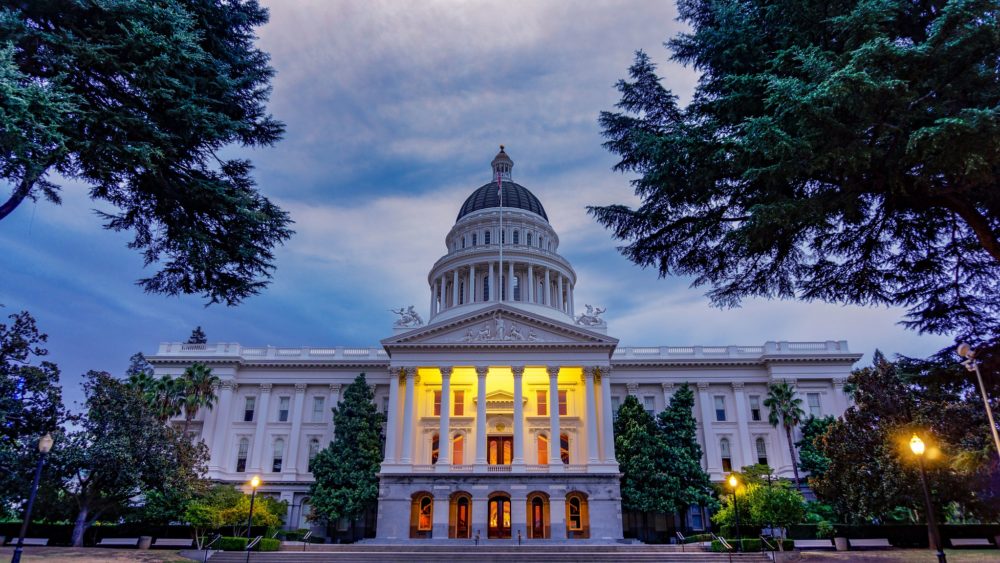
California State Capitol Building - Jeff Turner
The California Fair Political Practices Commission (FPPC) announced the formation of a Digital Transparency Task Force. The purpose of this group is to address the issues surrounding political advertising through social media and other digital outlets. The Digital Transparency Task […]
The California Fair Political Practices Commission (FPPC) announced the formation of a Digital Transparency Task Force.
The purpose of this group is to address the issues surrounding political advertising through social media and other digital outlets.
The Digital Transparency Task Force will study the current landscape of these outlets.
They will also look at trends and ways to keep up with the ever-changing field, including regulations possibly needing updated, enhanced, added, or strengthened.
The FPPC created the task force to help set standards and to develop best practices for transparent digital political advertising.
They will also assist the public to easily find the information in a publicly accessible database.
November 8, 2019 •
California Fair Political Practices Commission Proposes Materiality Standard Amendments
On December 19, the Fair Political Practices Commission (FPPC) will consider proposed amendments to the materiality standard in both Regulations 18702.4 and 18702.5. The proposed amendment to Regulation 18702.4 would set the appropriate materiality standards for economic interests in sources […]
On December 19, the Fair Political Practices Commission (FPPC) will consider proposed amendments to the materiality standard in both Regulations 18702.4 and 18702.5.
The proposed amendment to Regulation 18702.4 would set the appropriate materiality standards for economic interests in sources of gifts.
Standards would be such that a financial effect on a nonprofit source of income would be considered material if the source is a nonprofit organization that will be financially affected under the materiality standards applied to a nonprofit source of income interest.
The FPPC would also repeal the existing Regulation 18702.5 and adopt new language.
New language would update the materiality standard applicable to a personal financial effect for improved clarity and guidance.
Language would make that standard an objective, bright-line standard, met when a decision would have a personal financial effect worth $500 or more rather than when the official or the official’s immediate family member will receive a measurable financial benefit or loss from the decision.
The FPPC is accepting written comments on the proposals until December 17, 2019.
October 3, 2018 •
California’s FPPC Considers Biennial Cost of Living Adjustment for Campaign Contribution Limits
On November 15, the California Fair Political Practices Commission (FPPC) will consider proposed regulations to make biennial cost of living adjustments to campaign contribution and gift limits that will apply from January 1, 2019, through December 31, 2020. The proposed […]
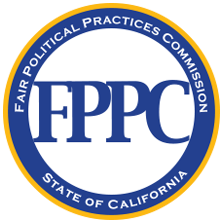 On November 15, the California Fair Political Practices Commission (FPPC) will consider proposed regulations to make biennial cost of living adjustments to campaign contribution and gift limits that will apply from January 1, 2019, through December 31, 2020.
On November 15, the California Fair Political Practices Commission (FPPC) will consider proposed regulations to make biennial cost of living adjustments to campaign contribution and gift limits that will apply from January 1, 2019, through December 31, 2020.
The proposed regulations would change the gift limit from $470 to $500 and make increases to campaign contribution limits for candidates. Adjusted contribution limits for gubernatorial candidates would increase from $29,200 to $31,000 per person.
The FPPC is accepting written comments on the proposals until November 13, 2018.
June 8, 2016 •
FPPC to Amend Lobbyist Regulation
California’s Fair Political Practices Commission (FPPC) will consider a proposed regulation to further clarify the definition of “lobbyist” at a public hearing set for July 21, 2016. The proposed regulation would create a rebuttable presumption that all compensation from a […]
 California’s Fair Political Practices Commission (FPPC) will consider a proposed regulation to further clarify the definition of “lobbyist” at a public hearing set for July 21, 2016.
California’s Fair Political Practices Commission (FPPC) will consider a proposed regulation to further clarify the definition of “lobbyist” at a public hearing set for July 21, 2016.
The proposed regulation would create a rebuttable presumption that all compensation from a person for services that include direct communication with a qualifying official for the purpose of influencing legislative or administrative action received within a calendar month is for the purpose of direct compensation.
The FPPC is accepting written comments on the proposal until July 18, 2016.
October 9, 2015 •
FPPC Considers Proposals Concerning Enforcement Complaints
On November 19, the California Fair Political Practices Commission (FPPC) will consider a proposed regulation concerning the procedures for notification of enforcement complaints. The proposals to be heard at the public hearing will include a revised policy for media and […]
 On November 19, the California Fair Political Practices Commission (FPPC) will consider a proposed regulation concerning the procedures for notification of enforcement complaints. The proposals to be heard at the public hearing will include a revised policy for media and public record inquiries. The FPPC is accepting written comments submitted to the Commission offices no later than 5:00 p.m. on November 17, 2015. The notice for the proposed regulatory changes can be accessed here.
On November 19, the California Fair Political Practices Commission (FPPC) will consider a proposed regulation concerning the procedures for notification of enforcement complaints. The proposals to be heard at the public hearing will include a revised policy for media and public record inquiries. The FPPC is accepting written comments submitted to the Commission offices no later than 5:00 p.m. on November 17, 2015. The notice for the proposed regulatory changes can be accessed here.
September 24, 2013 •
Senate Confirms FEC Nominees
Ravel and Goodman
 Yesterday, President Barack Obama’s two Federal Election Commission nominees, Anne Ravel and Lee E. Goodman, were confirmed by the U.S. Senate. Ravel is the chair of the California Fair Political Practices Commission. Goodman is a partner with the law firm of LeClairRyan. The remaining four commissioners are all serving with expired terms.
Yesterday, President Barack Obama’s two Federal Election Commission nominees, Anne Ravel and Lee E. Goodman, were confirmed by the U.S. Senate. Ravel is the chair of the California Fair Political Practices Commission. Goodman is a partner with the law firm of LeClairRyan. The remaining four commissioners are all serving with expired terms.
State and Federal Communications, Inc. provides research and consulting services for government relations professionals on lobbying laws, procurement lobbying laws, political contribution laws in the United States and Canada. Learn more by visiting stateandfed.com.

